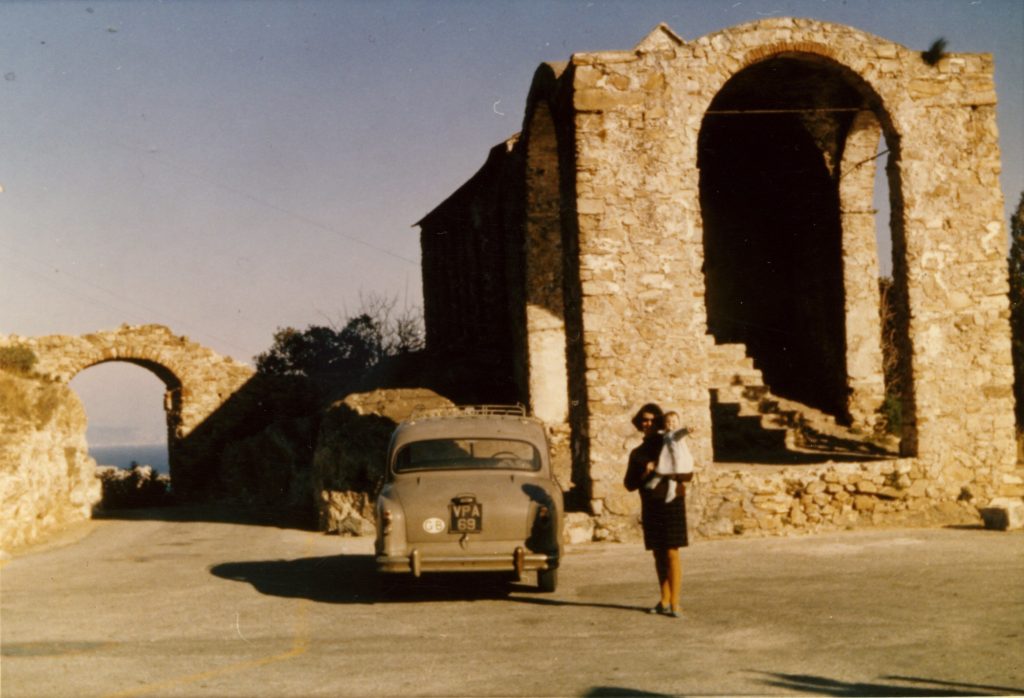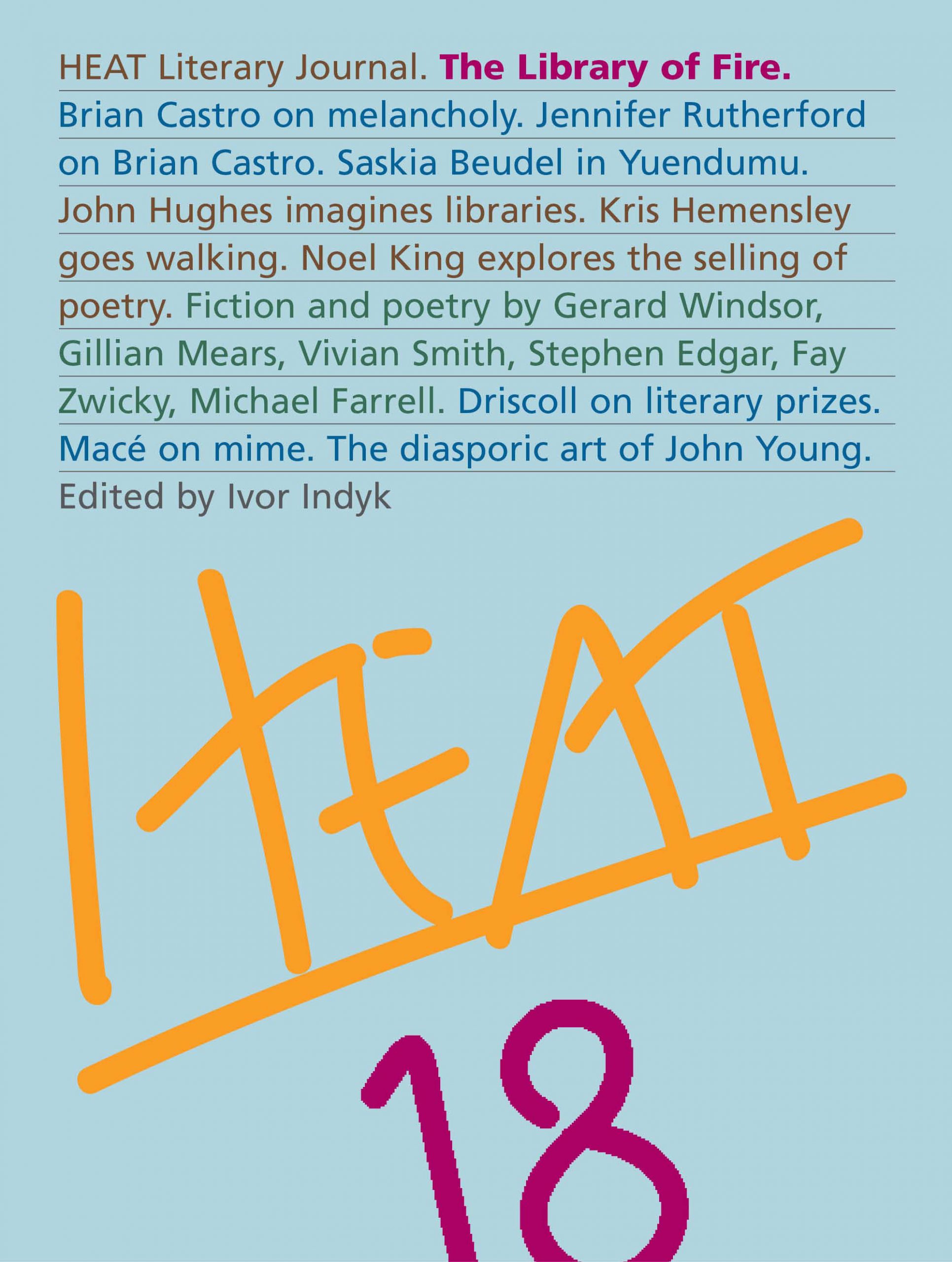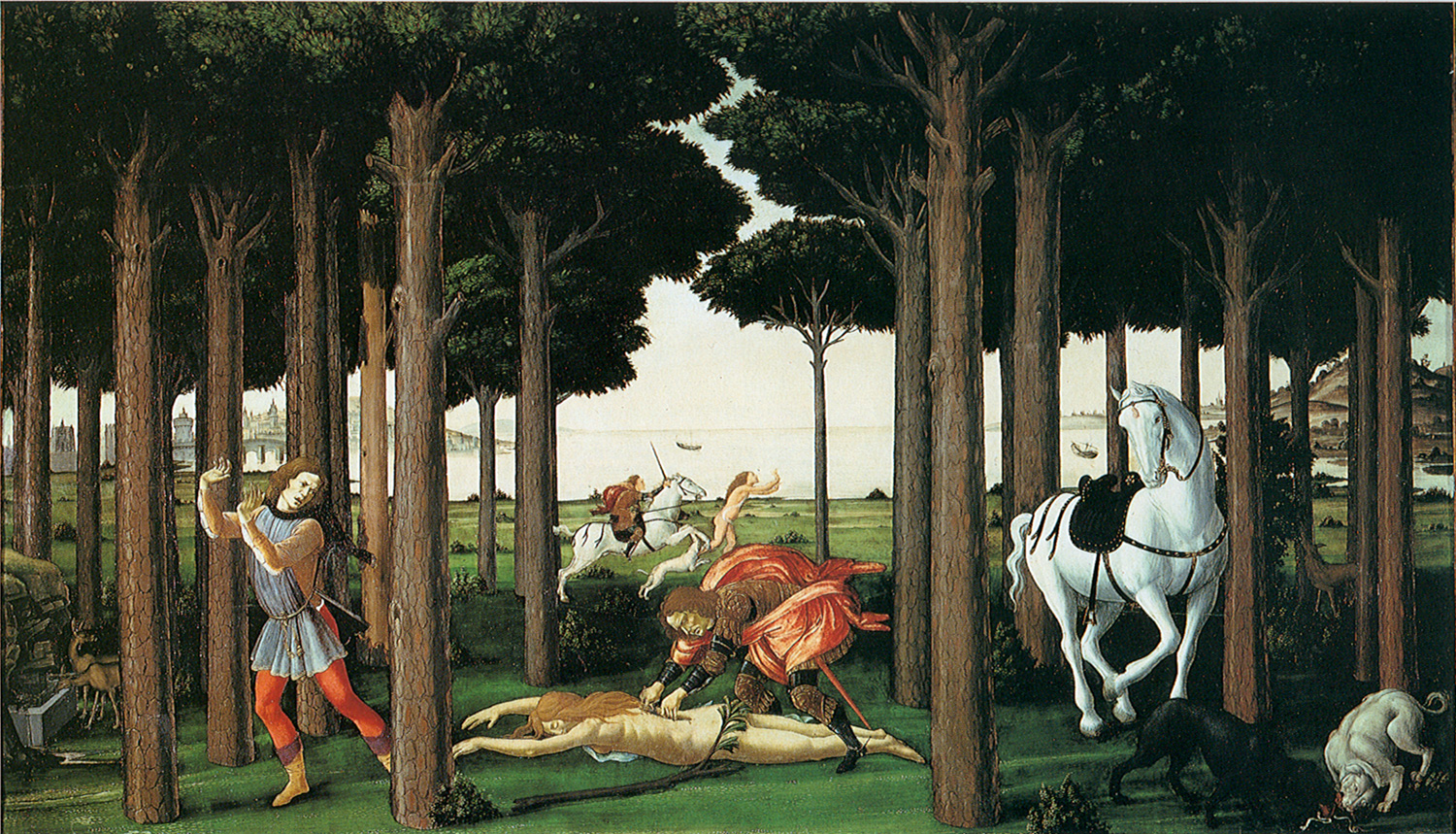If on a Winter’s Night Some Travellers…
I was re-reading Calvino. That is a pleasure of mine, re-reading. I like the surprising newness in familiarity. And very early on I came upon something that astonished me: the description of a railway station café and all its vapours, the smokiness, the befogged glass, the cloud of steam from the coffee machine; the regulars looking sideways at newcomers, the customers at the bar, the haloed lights, the odour of train that lingers after the trains have left. I have been there, and it was exactly like that, in 1967, as it is in Calvino’s narrative published in 1971 so I must have read it after my experience, but I don’t remember recognising that before.
My railway station was in Alassio, a little town on the Italian Riviera, not far from the French border. Late one night we walked across the train lines and went into the station bar, pushing open the clouded and heavy etched glass doors and into the yellow, steamy light inside. We sat at a table and ordered glasses of vermouth while we waited for the express train to Rome. Normally the express would not stop at a provincial station like this, but ah, there was a story to that. We sat and drank the herby vermouth – my husband, me with our baby and a man called Ian Thorne, who had left his wife and somewhat older baby at home. Too late for a baby to be out, but ours was travelling, sitting up with great gaiety taking in the scene. We talked as people do who expect never to see one another again, probably never even to communicate, though that was one of the things we talked about.
We hadn’t intended to go to Italy, we wanted to be in France, but hadn’t found anywhere to live; we’d got this place from an advertisement in the Sunday Observer. The Villa Felice was very grand; not old, possibly nineteenth century, with tall ceilings and marble floors and a flourishing, black wrought-iron staircase. Villa Felice was our address but we didn’t quite live in it, we had a kind of granny flat on the ground floor, which opened on to a stone-paved terrace that fell away through many more terraces with winding paths or else flights of steep stairs to the street below. There were terracotta urns and stone walls and even geraniums though the weather was very cold, indeed it had snowed on the early January day we had arrived. We had a small brick fireplace in which we burned vine prunings, which cost a lot of money. There is a picture of Lucy sitting almost on the hearth, holding up an orange, an object of admiration, of wonder. She is wearing red tights and a red tartan Viyella top, she looks like a little cosy hot-water baby.
When the bread man came past in his three-wheeled motorbike truck, calling his wares, Graham would gallop down the stairs and buy fresh hot panini which we would eat for breakfast, that was the time he went past. There was a woman who came with the villa, a housekeeper, she would have cooked and cleaned for us but we couldn’t afford that, nor did we want it, in our small two rooms, bedroom and sitting room, flowery, cluttered, many-carpeted spaces, with a poky kitchen and a cold bathroom. The water heater over the kitchen sink was called a Vesuvio and that over the deep sitz bath a Volcano; I did not care for these reminders of explosions in precarious-looking gas-fired cylinders. Later when I went to a dressmaker in a large barn-like room she had a heater which consisted of a huge, metal gas bottle, propped diagonally on a kind of trolley with a mantle at the top end, heated by a flame roaring out of the bottle’s neck. It was called a bombola. She pulled it up close when I took my clothes off to try the new ones on, and I would step back. She made me several dresses to an Yves St Laurent pattern. I was wearing one of them, in a fabric crowded with a myriad tiny flowers in puce colours, sitting at a bar on the boat on the way home, when John Olsen patted my knee and said, Splendid dress.
Sometimes we got letters addressed to Tringham Reverend Arald who was the father of the doctor near Ely who owned the villa. But they were all junk mail so we put them on the mantelpiece. We knew that the reverend Arald was dead.

We had a car which we parked in the street outside our ornate metal gates. It was a Standard Vanguard the colour of an old turd which we had bought in Cambridge for fifty pounds and used there for a term. It was quite a frightening car to drive because you weren’t sure whether it would break down; we’d spent money on it in Paris and then had some scares coming over the Alps, that we would be stranded in the snow. I remember thinking how would we keep warm with this small baby through a long, cold, alpine night, but it was all right, it kept going. People laughed when they saw us go past; we had a roofrack with a cot and a plastic bath and suitcases on it; the pram was in the boot. Lucy’s bassinet was on the back seat and this part of the car was marvellously roomy, you could walk around in there and change nappies, even stand almost upright. She travelled in the basket or else in a seat we’d bought from Mothercare, which we stuck on the back of the front bench seat of the car. It was made of metal piping, it had a slightly padded vinyl seat and back and a round plastic tray table in front. Lucy sat up there, her head level with ours, looked out the window, was absolutely part of the action. She could eat rusks and other snacks and loved it. When we stopped at a café we lifted her out and then the seat and sat it on the back of a café chair. I think about this with retrospective horror; you can see it breaks every rule of child safety. Of course, nothing happened. The car was built like a tank, it travelled at a very stately pace, and there was not a lot of fast traffic on the roads that was likely to collide with you. Nevertheless I know that there is an element of luck here; had we had an accident she would have come to a very bad end. But she didn’t, and she had a good time. We were very pleased with the set-up.
Sometimes we drove into France, to Nice and to Menton, along the corniche and up to the ancient mountaintop village of Eze. In Menton we sat in a café on a little strip of grass between the carriageways of the main road, with our baby seat on the back of a chair, and drank coffee served by waiters who ducked across the highway traffic. Or we went the other way, further into Italy. Never very many miles, the roads were winding and slow, the days short. We went down to the town and pottered about there, or to Santa Croce nearby. Olive oil was the big local crop. Ligurian oil. Olio Sasso we heard came from there. The town was very pretty, its streets lined with citrus trees in tubs, oranges and lemons and mandarins, it was like living in an orangery. The main street was called the viale Hanbury and it was in certain improbable respects an English town; some people by the name of Hanbury had bought up all the land in the nineteenth century, so it was their town. That was why the express train stopped. The family owned the land on which the railway station stood and they allowed it to be built and the railway to go through only if there was an agreement that all trains stop there. I think this was a matter of arrangement, if nobody wanted to get on or off they roared straight through. So there is this ordinary commercial reason for the express stopping, nothing at all sinister as it is in Calvino. No dead bodies or mysterious wheeled suitcases. Only us, a baby, a pram, and a nightmare of luggage, including an enormous green trunk with gilt clasps that would have held several corpses.
There was also an English library in the town and you would see elderly English people tottering in and out of it. There was I believe quite an expatriate population but we did not mix with them. I didn’t need to go to the library because the Reverand Arald had left a lot of good books behind which were a great temptation to stay indoors. We did a lot of our shopping at Standa, the supermarket, because I could see the amount of money written on the cash register and not have to try to hear the millions of lire that things cost. We bought wonderful local chickens, with their giblets in, so that I could feed the liver to Lucy, baby food was exorbitantly priced it seemed to me and only for emergencies; I pureed the livers in a baby Mouli and mixed them with vegetables and a lot of apple because she didn’t much like the taste of liver, then or ever. To get the giblets in you had to have the head on which was unpleasant. There was a fruit shop in a cavernous space and up the road from the villa on a little path called the saleta was a local grocery store full of wonderful things. The Thornes shopped there because it would give them credit. They were even harder up than we were. He was a playwright and years later I saw a series of BBC television plays on the wives of Henry VIII and he had written one of those; it was good. The other way he hoped to come into money was from the sale of family land so the Channel tunnel could be built, which seemed to us such a vain hope that I marvelled how they could ever entertain it, but when the tunnel happened I did wonder if it went across the land that he would have made a fortune selling.
They had a television set and one night they invited us over to see the Eurovision song contest which was not anybody’s idea of fun but it was all there was. Of course we went. They had a basement flat in a villa too. The wife (I’ve forgotten her name; how can I have done that? She was slender, pretty, very Canadian and we got on well) was much younger than him, she was not his first wife, he had grown-up children and then this baby who was a bit older than Lucy and suffered from projectile vomiting, it turned out to be something that needed surgical fixing and all that had cost a lot of money. For supper we had panettone bought on tick from the shop on the saleta, delicious it was, and they toasted it on the radiator; it was one of those with a circular element and they tipped it back and grilled the panettone then spread it thick with pale Italian butter. We drank red wine out of several litre bottles with plastic wickerwork round the bottoms, local, rough, good.
There was also a washing machine they could use, and once anyway I went over and we washed together. It was an ancient machine in an outhouse so there wasn’t any power, that was brought on a long extension lead that was suspended over the door frame, you had to reach up and plug the machine cord into it to turn it on. No switches. Only problem was, the prongs were on the live extension end; you went very gingerly about that task. Drying your hands carefully first, standing on tiptoe. But, once again, here I am, telling the tale.
I think I decided I preferred washing clothes in the sitz bath, under the Volcano.
Telling the tale: you might have thought at the beginning it was going to be like Calvino. Of course you have been disappointed. Only the station café is like Calvino. And maybe Ian Thorne who is hurrying us over the tracks, into the bar, sitting us down, offering drinks. Left to ourselves we might not have drunk vermouth at ten o’clock at night, waiting for the express train to stop. It was good, especially as he was paying, which he never did, none of us did, we didn’t have enough money. When we arrived in Alassio and went to the bank for the money from Australia we discovered that somebody from the bank at home posting it over had looked at the figures and thought, oh that’s far too many, and moved the decimal point, so instead of having eighty dollars we had eight to last for a month. Graham got on the phone and was very firm and they telegraphed the right amount; normally we didn’t have money telegraphed because it cost too much but he said the bank must pay since it was their fault. They did. So you can see there was not a lot of money to go tossing round on drinks in station cafés. Even in 1967 and in Italy eighty dollars was not much to live on for a month.
Ian was there seeing us off because he was taking the car. Taking is the word to notice. Not being given it, or buying it, indeed, he was taking it. There were fierce laws in Italy about dumping cars, which we would have been doing had we gone off and left this rusty, turd-coloured object behind. You could never come into the country again if you had that mark against your name. We didn’t think we had a chance of selling it, not this great tank in the land of tiny Fiats, and one with its steering wheel on the wrong side. Ian was very keen to have it, he didn’t have a car and he had a wife and baby. We filled in the paperwork and he had to sign it and post if off to England to register that it was now his property. He had driven us down to the station and would take it back home with him. He planned on driving it back to England. There was an agreement, that if he got good use out of it one day he would send us ten pounds. I think we all knew that this wasn’t going to happen. I think that the glasses of vermouth were the price of the car.
We did wonder if he ever bothered sending the papers to England. Perhaps he did. We certainly didn’t ever have any trouble getting back into Italy after that, so there appeared to be no black marks against our name.
So, the express train stopped – that’s the other Calvino touch, the unlikely stopping of the express train – we climbed aboard with the help of Ian and various porters to get the luggage on in about a minute, and rushed through the night to Rome, and then on to Naples, and the boat home.


